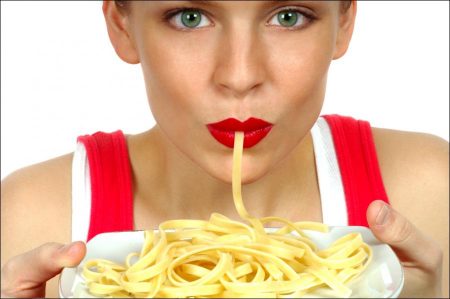When deciding to follow a low carb diet, dieters often want to know what foods have no carbs. For those who count carbs, foods that have low or zero carbs are precious commodities.
What Are Carbs?
“Carbs” is a shortened version of the word carbohydrates, which are macronutrients containing sugars. Carbohydrates are further broken down into distinct categories.
Simple carbohydrates – Examples of simple carbohydrates include dairy products, candy, baked goods, fruit, and processed sugars.
Complex carbohydrates – Examples include rice, corn, flour, whole grains, and legumes.
Fiber and sugar alcohols are also considered carbs, but they are usually not restricted as part of a low-carb diet.
Foods with No Carbs
Low-carbohydrate diets, such as the Atkins diet, limit the amount of carbohydrates you can eat in order to exert insulin control. In general, most low-carbohydrate diets recommend eating fewer than 50 grams of carbohydrates per day, and some suggest eating as few as 20 to 25 grams per day. When you consider that one cup of white rice has 151 grams of carbohydrates, and a slice of bread contains about 15 grams of carbohydrates, eating carbohydrate-containing foods adds up quickly. Foods with no carbohydrates can help you eat adequate amounts and still limit carbohydrate intake.
Meat and Animal Protein
All naturally-occurring meats contain no carbohydrates; however, pre-packaged and deli meats are often processed with a sugar and salt solution or seasoning blends, conferring carbohydrates to the meats. Processed and cured meats, such as sausage, ham, bacon, and frankfurters regularly contain small amounts of carbohydrates. Eggs also have a trace amount of carbs (about .6g per egg). Reading package labels is essential to learn if pre-packaged products contain carbohydrates. In their natural state, the following contain zero carbs:
Beef
Veal
Organ meats (including brains, liver, and kidneys)
Lamb
Pork
Tongue
Chicken
Turkey
Fish (such as salmon, trout, and halibut)
Duck
Goose
Fish
Shellfish (such as crab, shrimp, and lobster)
Mollusks (such as oysters, mussels, and clams)
Game meats (such as venison and elk)
Exotic meats (such as ostrich and emu)
How Low-Carbohydrate Diets Work
While your body utilizes carbohydrates for energy, many diet experts suggest minimizing carbohydrates is an effective form of weight loss. Multiple studies support this assertion. When blood glucose rises in response to dietary intake of carbohydrates, your pancreas releases insulin, which is the key to losing weight on a low-carbohydrate diet. Health journalist Gary Taubes explains why this happens in an article for the New York Times, What if It’s All Been a Big Fat Lie. Insulin is a storage hormone.
It is responsible for both escorting fuel (food) into fat cells as body fat storage and keeping it there. In some ways, insulin acts as prison guard, making sure fat finds its way into cells and keeps it locked inside. When you limit carbohydrate intake, your body releases very little insulin. As a result, stored body fat escapes and exits your body. This is the mechanism of low-carbohydrate weight loss.
Finding Zero Carb Foods
Finding foods with zero carbohydrates is not difficult, especially if you read package labels carefully. Many health professionals express concerns about the health effects of low-carbohydrate dieting, so it is always best to check with your doctor before pursuing such a diet.
Hits: 193
